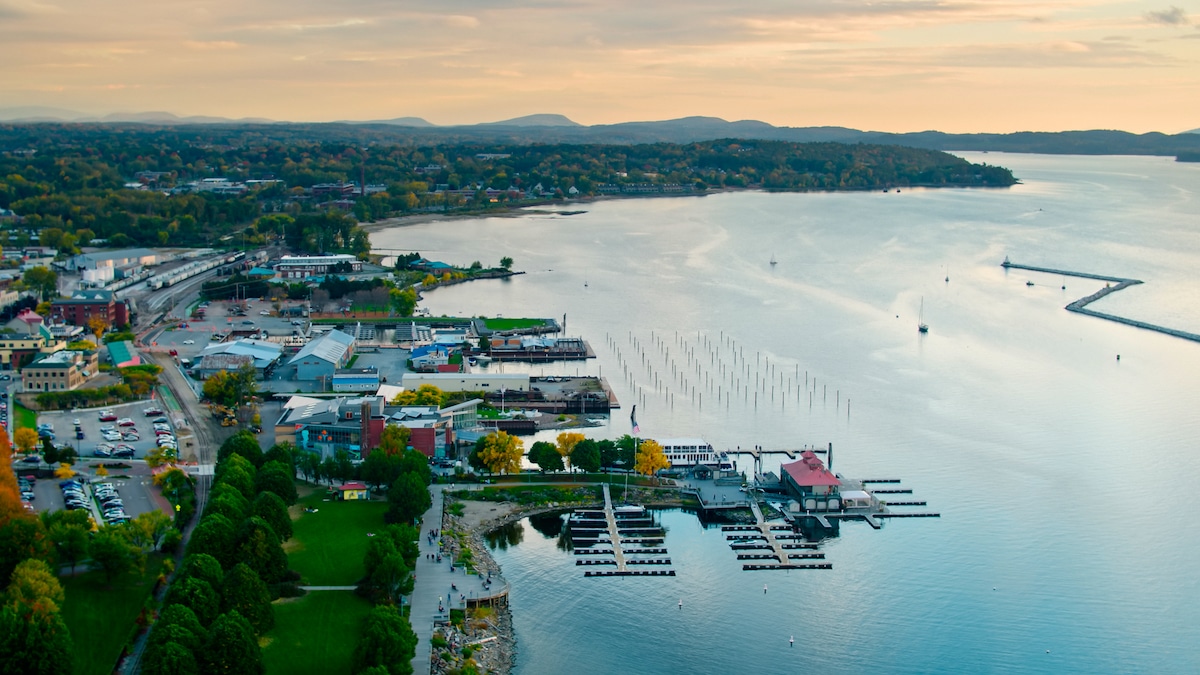10 Cities That Could Be Climate Havens in the U.S.

 Why you can trust us
Why you can trust us
Founded in 2005 as an Ohio-based environmental newspaper, EcoWatch is a digital platform dedicated to publishing quality, science-based content on environmental issues, causes, and solutions.
Florida is sinking. The Western states are drying out and catching fire. Is there anywhere in the U.S. that will still make a good home as the climate crisis continues?
The answer is yes. There are cities referred to as “climate havens” because they are located in areas less likely to suffer from extreme weather events and because they are designed in such a way that they could welcome more residents.
Tulane University associate professor of real estate Jesse Keenan provided CNBC with a list of potential climate havens Thursday, most of which are located in the East and Midwest. Keenan stressed that these cities could take steps today that would make it easier for them to welcome climate migrants in the future.
“This isn’t we’re going to build a community for tomorrow,” he told CNBC. “We’re going to build a community for today. And that’s going to be the foundation for the building of a community for tomorrow.”
Keenan’s list is as follows:
- Asheville, North Carolina
- Buffalo, New York
- Burlington, Vermont
- Detroit, Michigan
- Duluth, Minnesota
- Madison, Wisconsin
- Milwaukee, Wisconsin
- Minneapolis, Minnesota
- Pittsburgh, Pennsylvania
- Rochester, New York
Former National League of Cities program manager of climate resilience and sustainability Anna Marandi also suggested Ann Arbor, Michigan and Orlando, Florida. While Orlando might be a surprising choice, Marandi said its efforts to decarbonize meant it merited attention.
Many U.S. residents have already been forced to move because of climate change. They include the people who left New Orleans permanently after Hurricane Katrina and coastal Native Alaskan villages like Shishmaref and Newtok that are being relocated because of storm surges and melting permafrost, as Yale Environment 360 pointed out.
Florida State University assistant professor of sociology Matthew Hauer estimated that sea level rise will force 13.1 million U.S. residents to move by 2100. Keenan, meanwhile, estimated that 50 million people in the U.S. could relocate to more climate friendly regions.
“Temperate northern states will get the most inbound migration,” he told Yale Environment 360.
The Great Lakes region is considered especially attractive because it is spared both the storms of the East Coast and the wildfires of the West, and has no shortage of fresh water, Grist pointed out. Further, the lakes help moderate temperature extremes and global warming means that the region’s infamous winters are getting less bitter.
However, these potential climate havens need to actually prepare to receive more residents in a sustainable and equitable way.
“In some cases, it’s become more of an economic development slogan than the real detailed and robust planning that is going to be necessary to actually make these places a haven from climate change,” University at Buffalo professor Nicholas Rajkovich told Grist.
Steps cities can take include passing housing policies to guard against gentrification, planning for the climate impacts that will still occur – such as increased flooding in the Midwest – and reducing emissions through promoting renewable energy, public transit and denser housing.
“I see climate migration as an opportunity for these cities to avoid the mistakes of urban sprawl,” Marandi told CNBC. “They often have a vibrant, walkable downtown that might just need a little bit of revitalization.”
Subscribe to get exclusive updates in our daily newsletter!
By signing up, you agree to the Terms of Use and Privacy Policy & to receive electronic communications from EcoWatch Media Group, which may include marketing promotions, advertisements and sponsored content.

 233k
233k  41k
41k  Subscribe
Subscribe 



